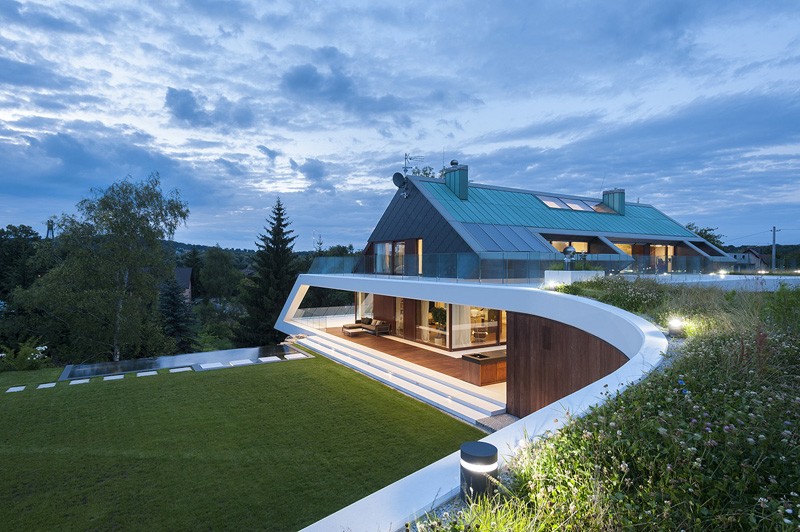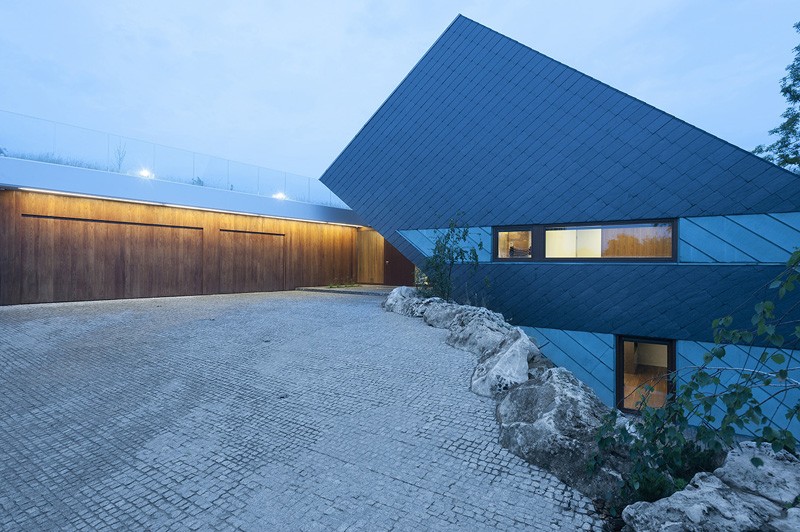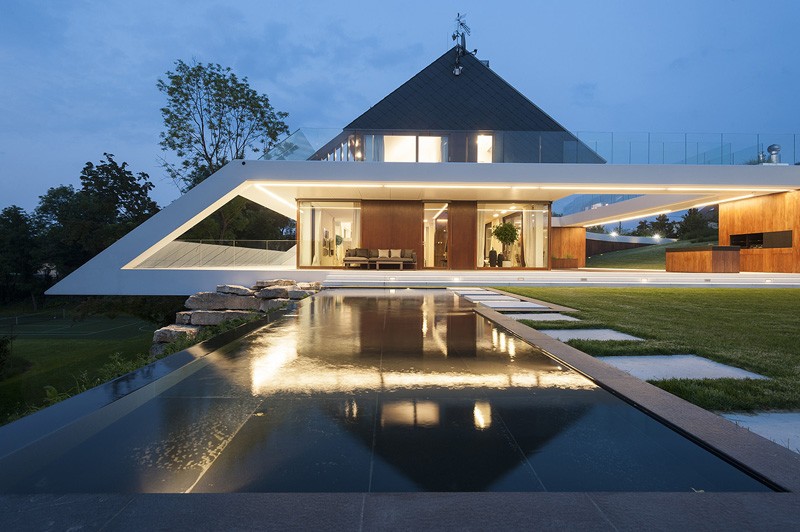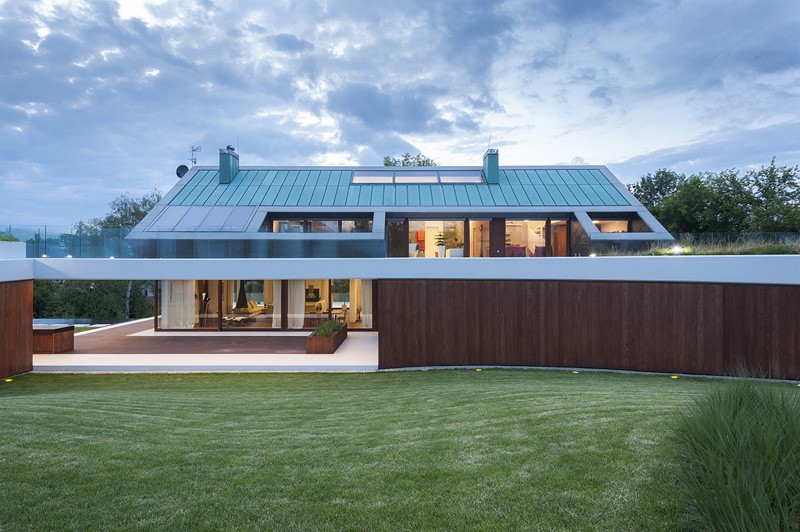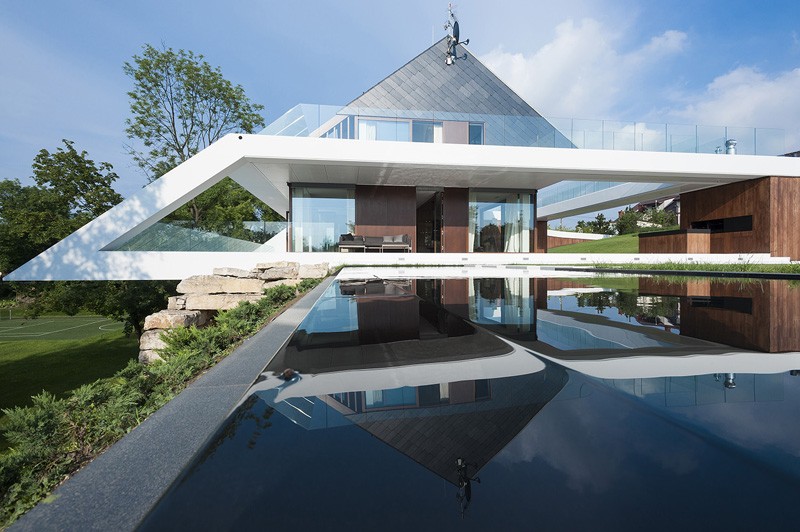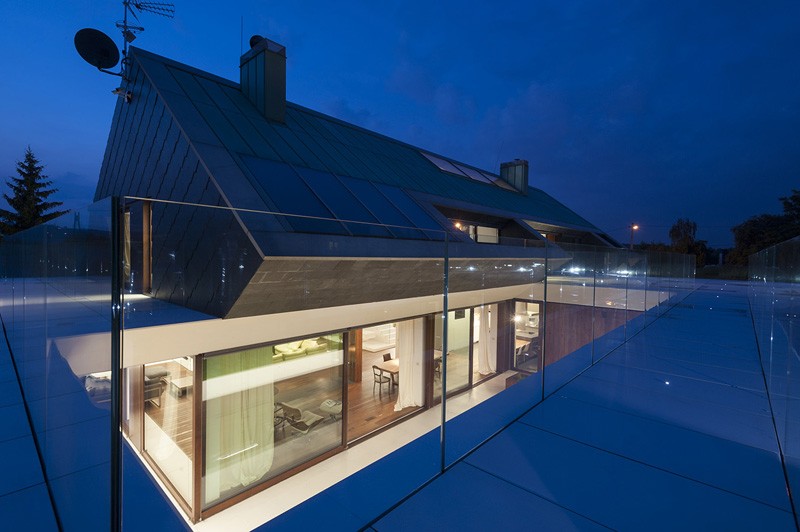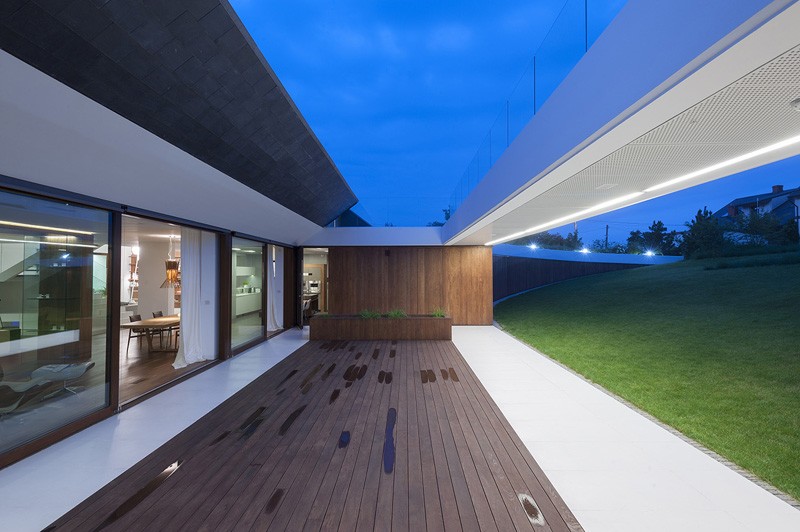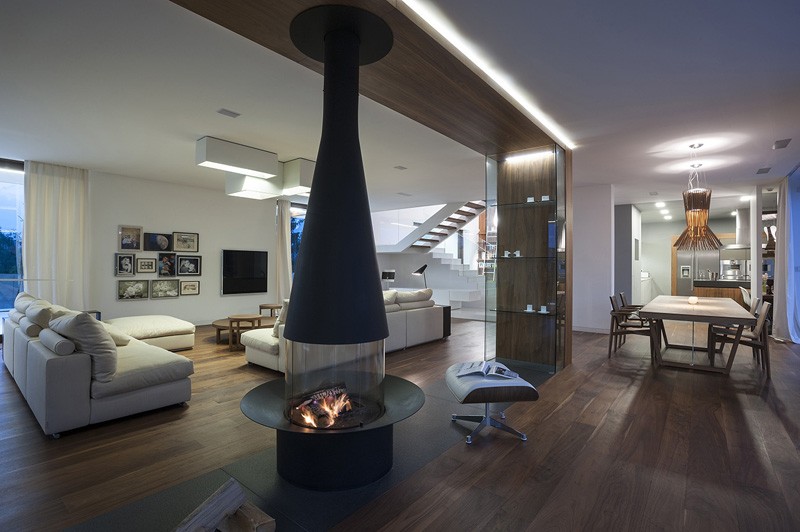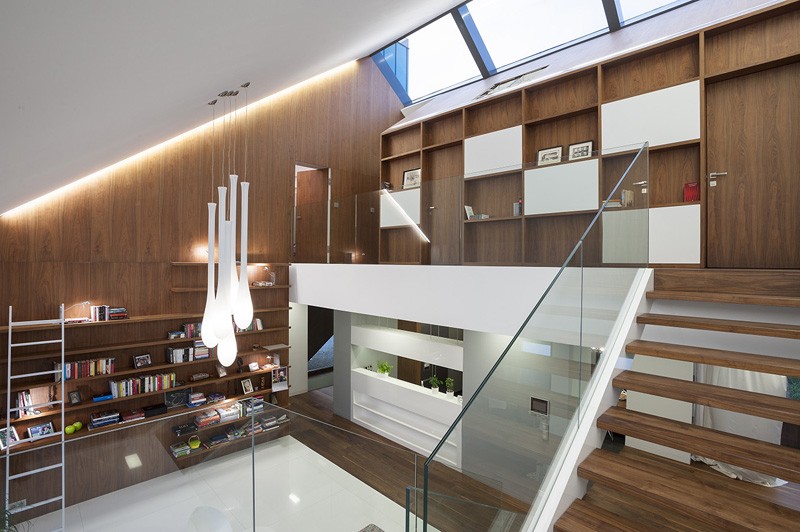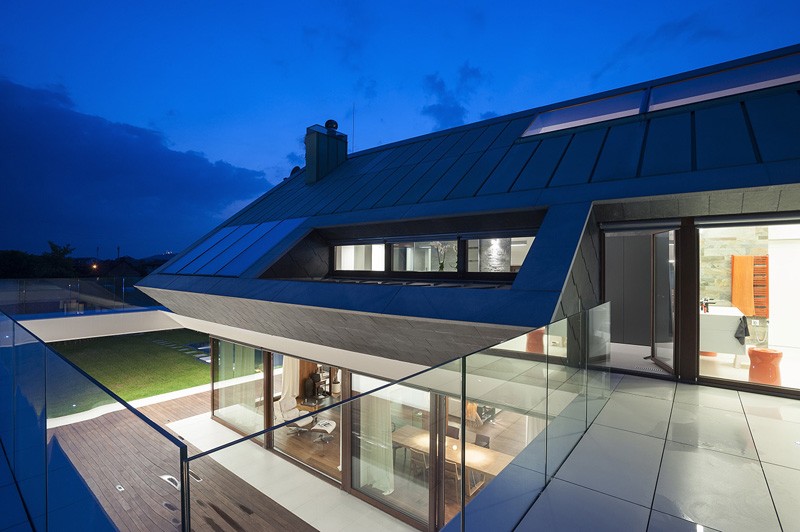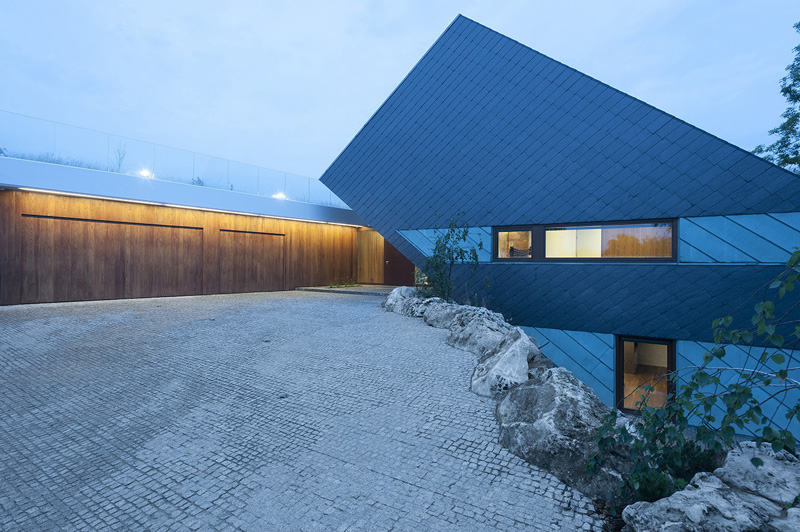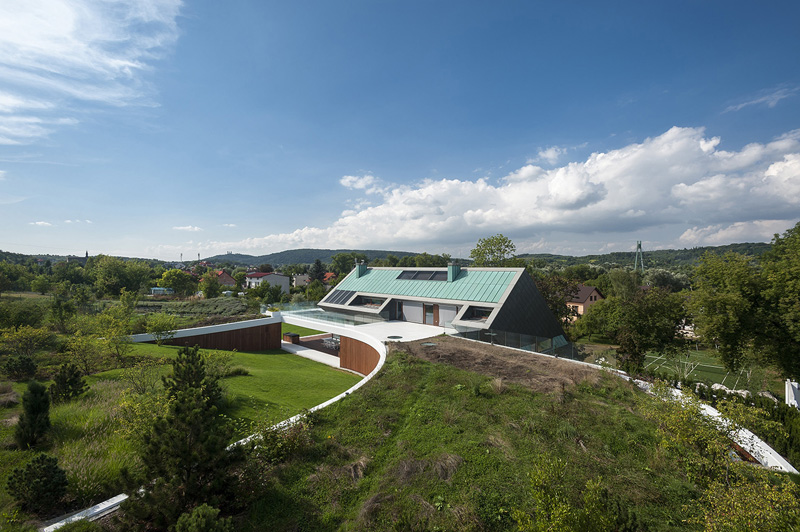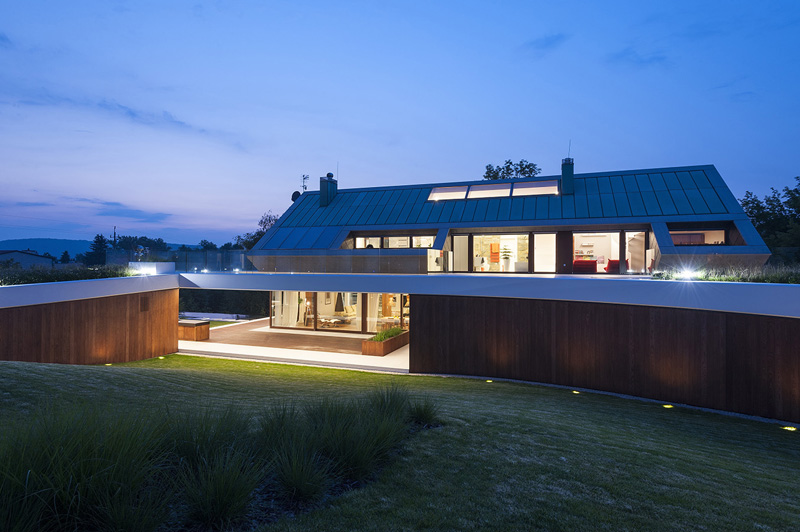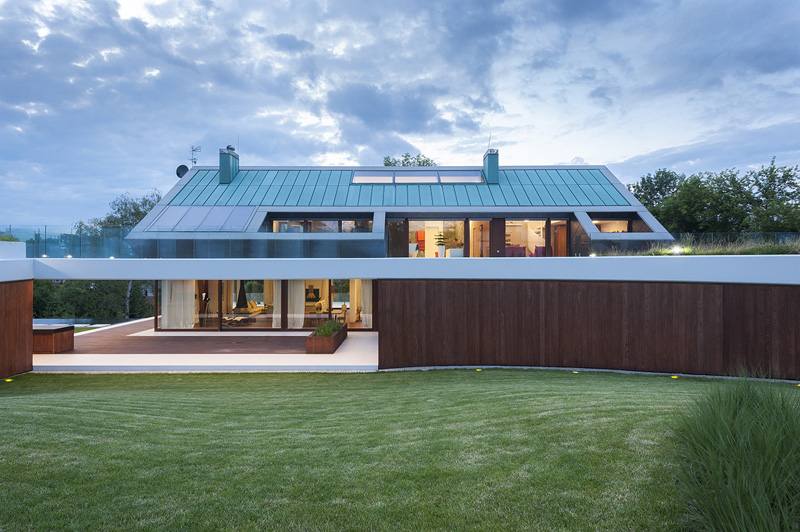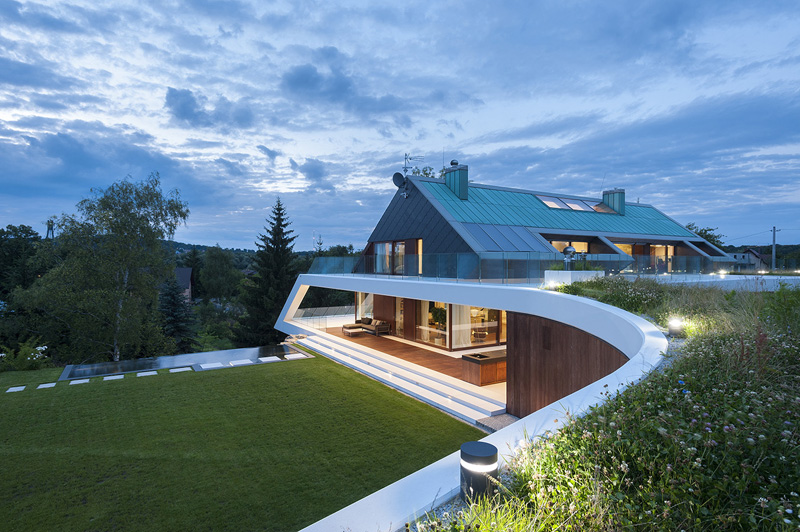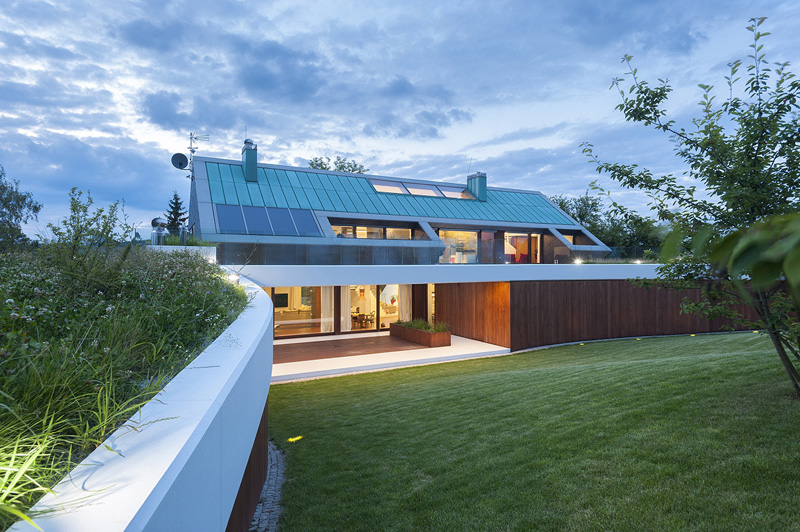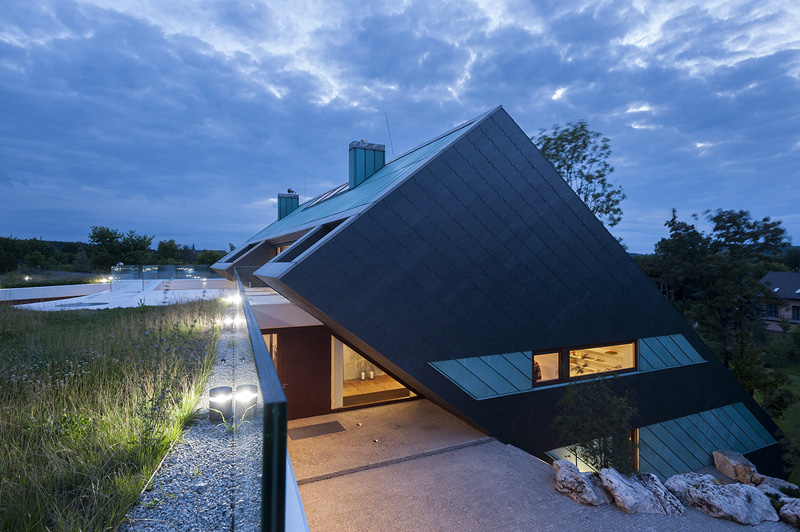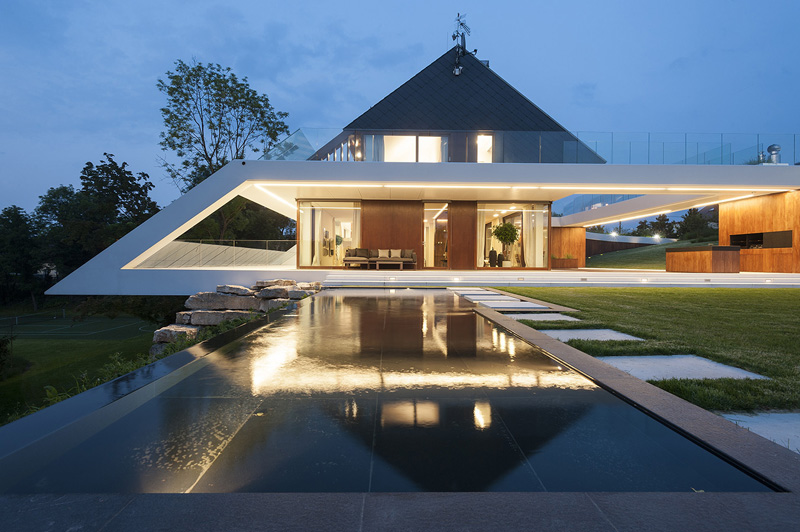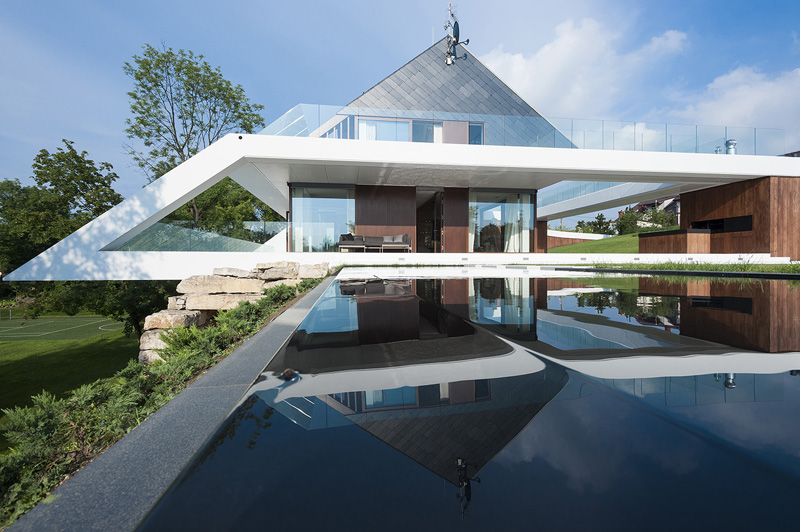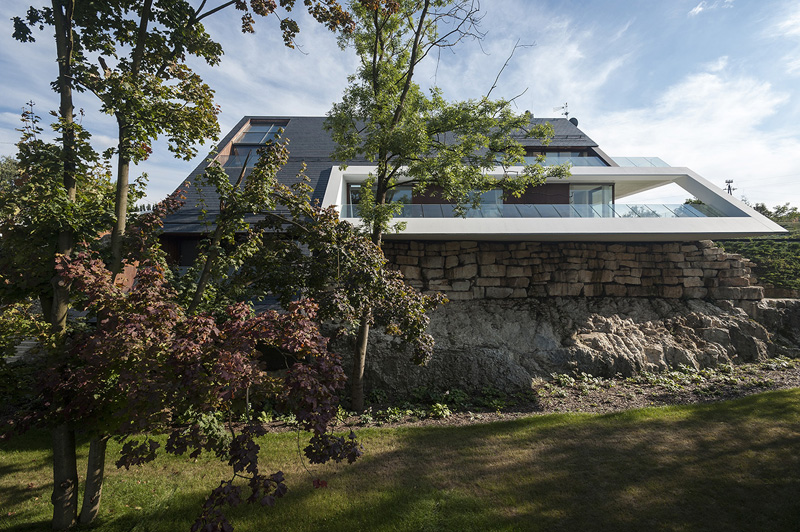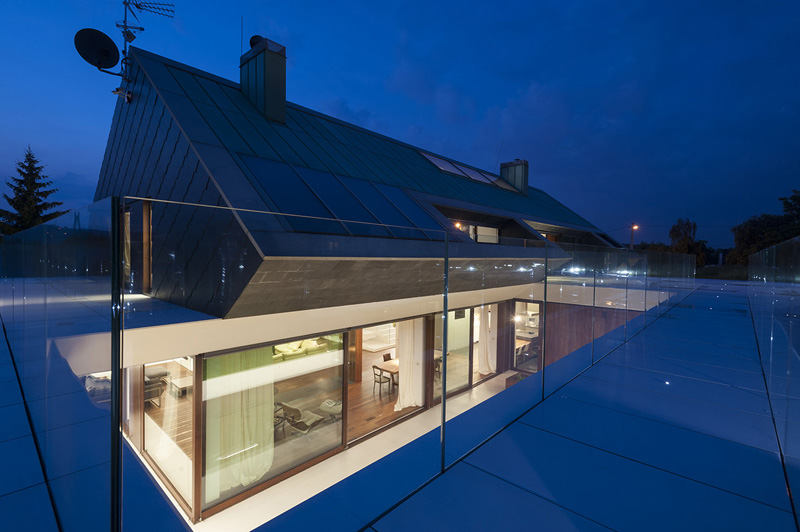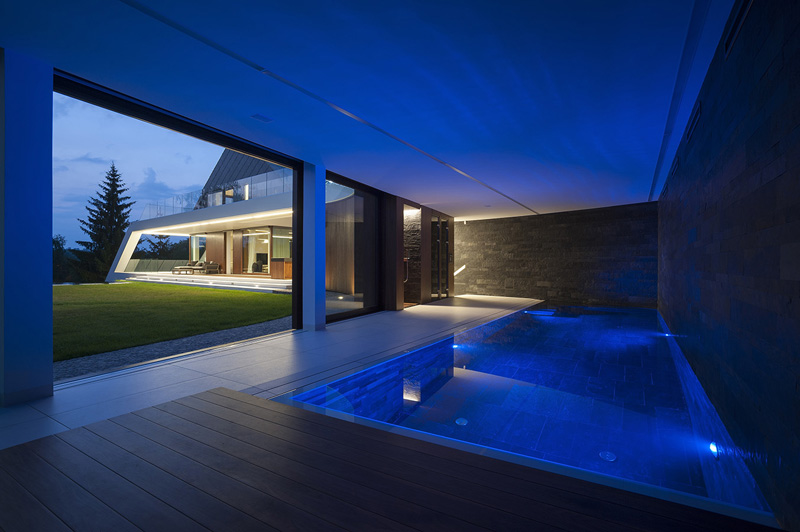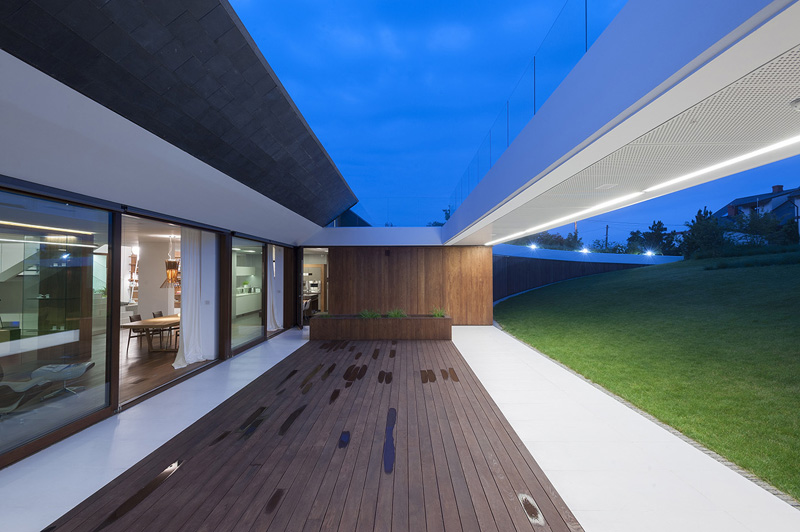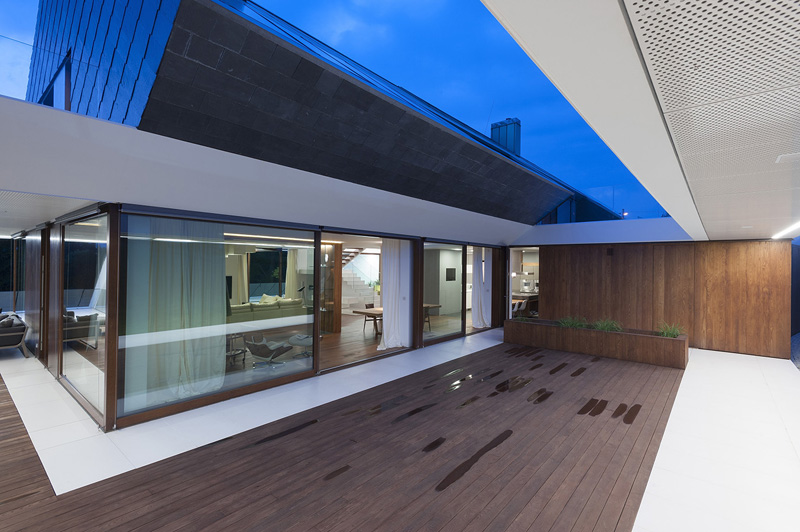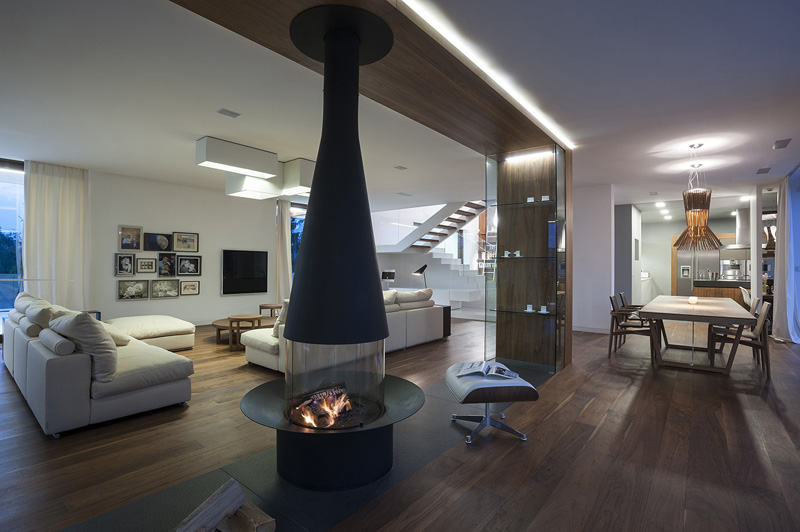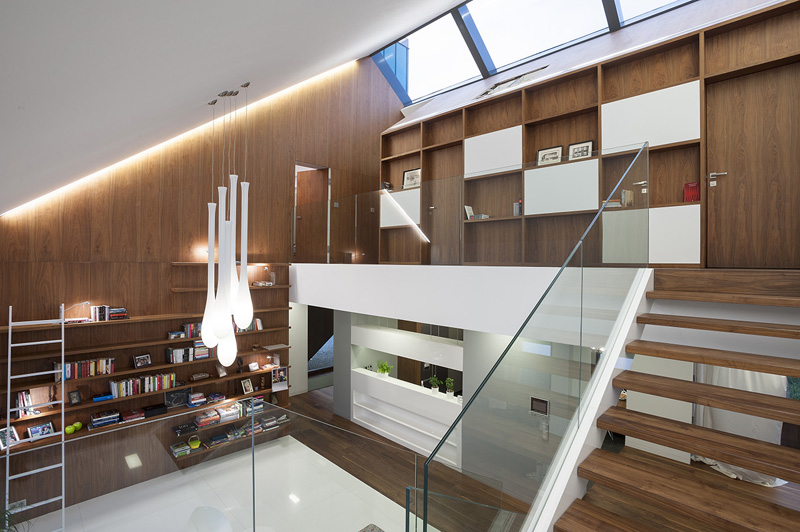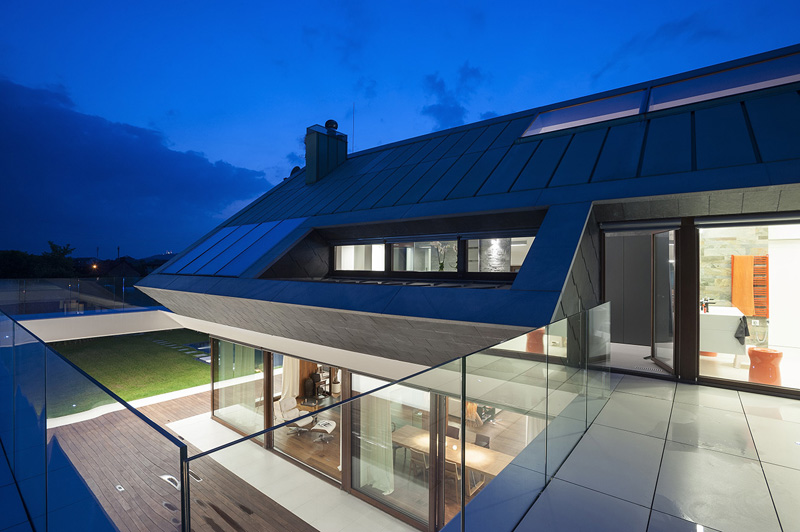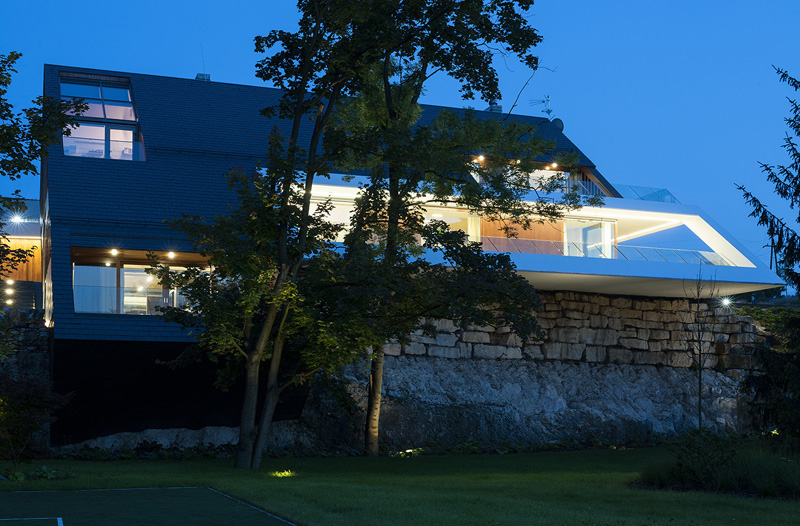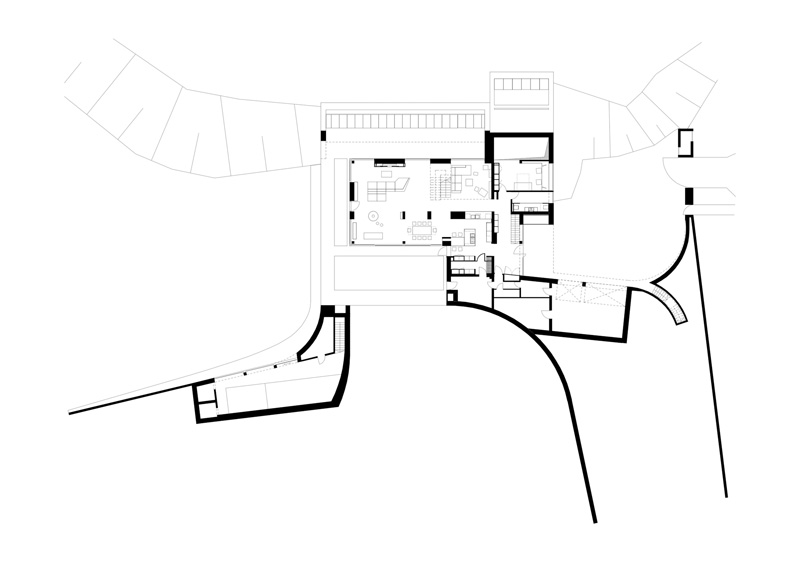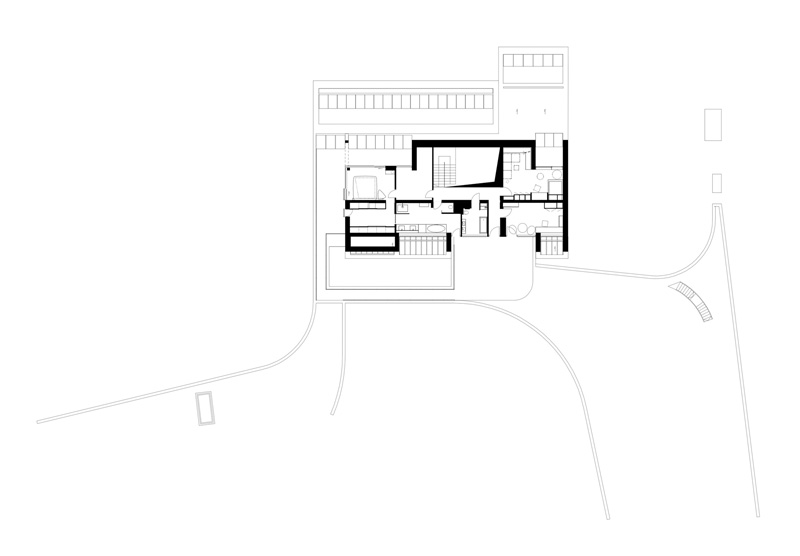Mobius Architecture have designed the Edge House, located in Kraków, Poland.
The architect’s description
Edge House is an attempt at designing a contemporary urban house in a mountain environment, where the local law requires traditional form.
The house owes its narration to a local anomaly – a slope plot with a view on the mountains surrounding Krakow is knifed through by an 8-meter lime rock.
The rock edge divides the plot into two levels, the lower one providing full privacy to the house owners, while the upper one – offering a panoramic view, as well as neighboring other buildings. It is an expression of the seemingly impossible – to build a house on the edge and to connect to plot parts to be able to use its potential to the fullest.
The building respects all design laws – all houses in this location must have pitched roofs with eaves and 37-degree slopes. The outcome is a quadric-prism form located in the upper part of the plot with an extension over the edge of the slope.
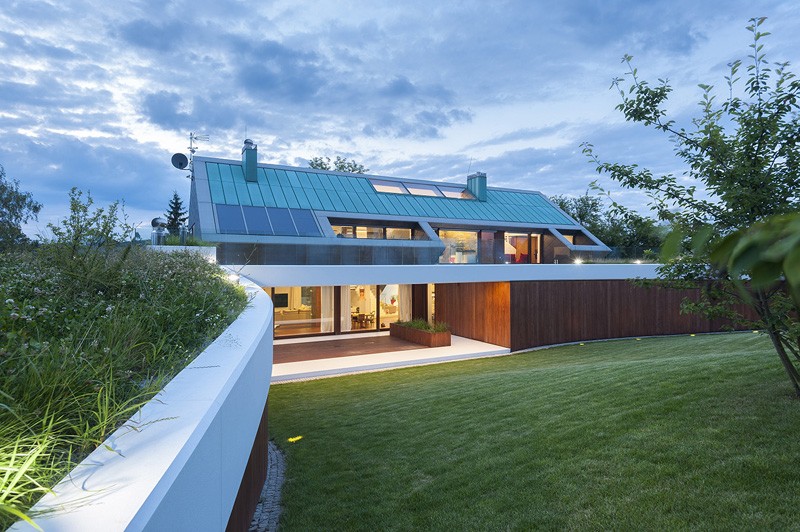
The cubature subjects to gravitation, tilting and ‘sliding’ down the slope. The outcome is an “overturned box”, emphasizing the dramatic nature of this topography. The tilted walls hence become the pitched roof required by law.
The tilted quadric-prism is the proper housing part. The living area is located at ground level to give it an impressive view.
The upper part of the plot was modified and separated from the neighbors using artificial banks replacing fences, and two additional building wings for auxiliary functions: garage and swimming pool. The form of both wings is softened by wavy wood-lined walls, and a green roof to blend with the surrounding.
Black schist, copper plate and green wing architecture is accompanied by the white terrace frame, thanks to which the obligatory eaves and the general form are enriched by balconies, terraces and footbridges – every room opens up to the garden.
An extensive living room from the side of the slope has the biggest terrace suspended on an 8-meter arm.
Architect: Mobius Architecture
Photography by Pawel Ulatowski
